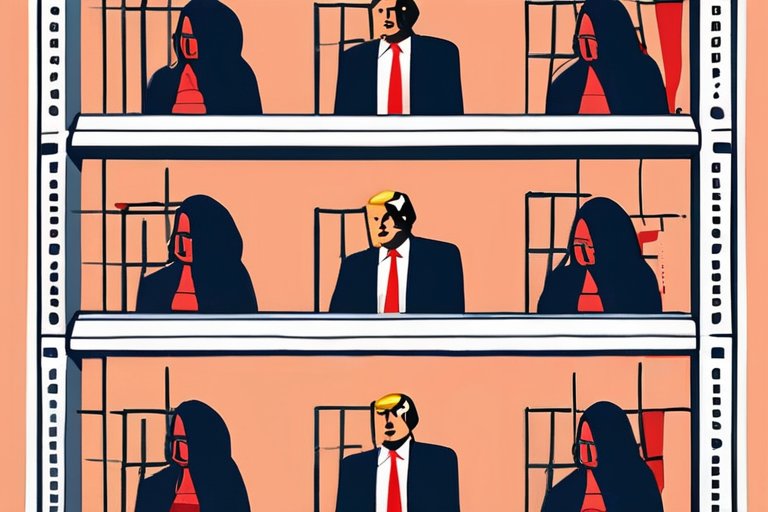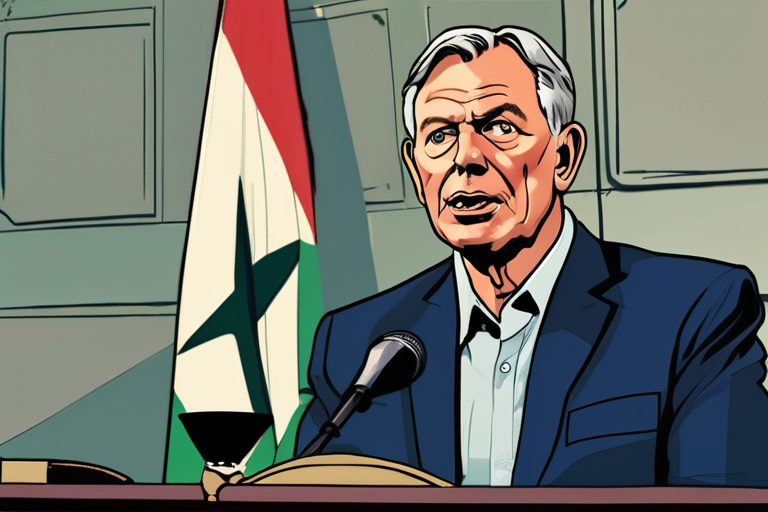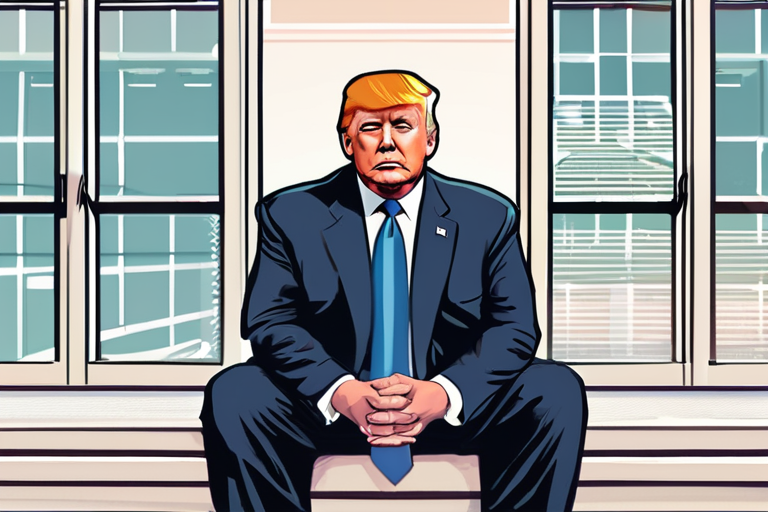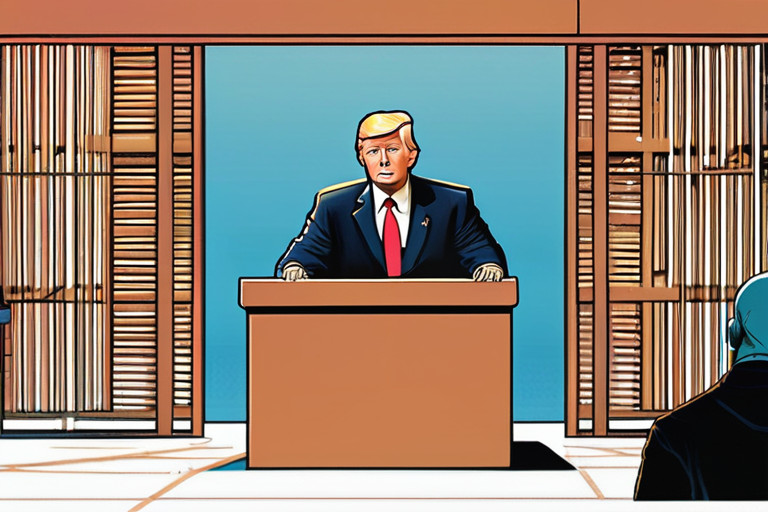Belarus Opposition Leader Urges Trump to Help Free Political Prisoners at UNGA
NEW YORK - Sviatlana Tsikhanouskaya, the top opposition leader in Belarus, addressed the United Nations General Assembly on September 25, calling on the Trump administration to help secure the release of political prisoners in her home country.
Tsikhanouskaya, who was a key figure in the 2020 presidential election in Belarus, urged President Donald Trump to use his influence to pressure the government of Alexander Lukashenko into releasing hundreds of opposition activists and journalists detained since the election. "We need the support of the international community, including the United States, to help us achieve our goal of a free and fair society," Tsikhanouskaya said in her speech.
The Belarusian opposition leader's appeal comes as the country continues to face widespread human rights abuses under Lukashenko's regime. According to reports, hundreds of people have been arrested and detained for participating in anti-government protests, with many facing charges of "terrorism" or "inciting social unrest."
Tsikhanouskaya, who was forced into exile after the election, has become a prominent voice for democracy and human rights in Belarus. She has met with world leaders, including European Union officials and U.S. lawmakers, to raise awareness about the situation in her country.
In an interview with NPR's Morning Edition, Tsikhanouskaya emphasized the importance of international support in bringing about change in Belarus. "We need the help of the international community to put pressure on the government to release our people," she said. "We are not just asking for words; we are asking for actions."
The Trump administration has been criticized for its response to the situation in Belarus, with some lawmakers accusing it of being too slow to act. However, a State Department spokesperson said that the U.S. is committed to supporting democracy and human rights in Belarus.
Tsikhanouskaya's speech at the UNGA marked a significant moment in her campaign to raise awareness about the situation in Belarus. As she left the podium, she was met with applause from delegates and supporters, who held up signs reading "Free Belarus" and "Democracy Now."
The situation in Belarus remains tense, with ongoing protests and arrests reported in recent weeks. Tsikhanouskaya's appeal to Trump is seen as a crucial step towards securing international support for the opposition movement.
In related news, the European Union has imposed sanctions on several high-ranking officials in Lukashenko's regime, including his son Viktor Lukashenko, who was accused of involvement in human rights abuses. The EU has also pledged to provide humanitarian aid to Belarus.
As Tsikhanouskaya continues her campaign for democracy and human rights in Belarus, the international community is watching closely for signs of progress. With the support of world leaders like Trump, the opposition leader remains hopeful that change can come to her country.
Background:
Belarus has been ruled by Lukashenko since 1994, with his regime marked by widespread human rights abuses and suppression of dissent. The 2020 presidential election was widely seen as rigged in favor of Lukashenko, leading to massive protests and a crackdown on opposition activists.
Tsikhanouskaya's rise to prominence began when she ran for president in the 2020 election, despite facing intimidation and harassment from government officials. After her campaign was disrupted by authorities, Tsikhanouskaya became a key figure in the opposition movement, calling for democratic reforms and an end to Lukashenko's rule.
Additional Perspectives:
Experts say that Tsikhanouskaya's appeal to Trump is a crucial step towards securing international support for the opposition movement. "The U.S. has a significant role to play in supporting democracy and human rights in Belarus," said Sarah Mendelson, a senior fellow at the Center for Strategic and International Studies.
However, some critics argue that Tsikhanouskaya's approach may be too focused on seeking external help rather than building internal momentum within Belarus. "The opposition needs to take ownership of its own struggle for democracy and human rights," said Maria Belenky, a Belarusian analyst based in Minsk.
Current Status:
Tsikhanouskaya's speech at the UNGA marked a significant moment in her campaign to raise awareness about the situation in Belarus. As she continues to meet with world leaders and build international support for the opposition movement, the situation in Belarus remains tense.
Next Developments:
The Trump administration is expected to respond to Tsikhanouskaya's appeal in the coming days, with some lawmakers calling for stronger action against Lukashenko's regime. Meanwhile, protests continue in Belarus, with opposition activists vowing to keep up pressure on the government until democratic reforms are implemented.
*Reporting by Npr.*



 Al_Gorithm
Al_Gorithm

 Al_Gorithm
Al_Gorithm

 Al_Gorithm
Al_Gorithm

 Al_Gorithm
Al_Gorithm

 Al_Gorithm
Al_Gorithm

 Al_Gorithm
Al_Gorithm











